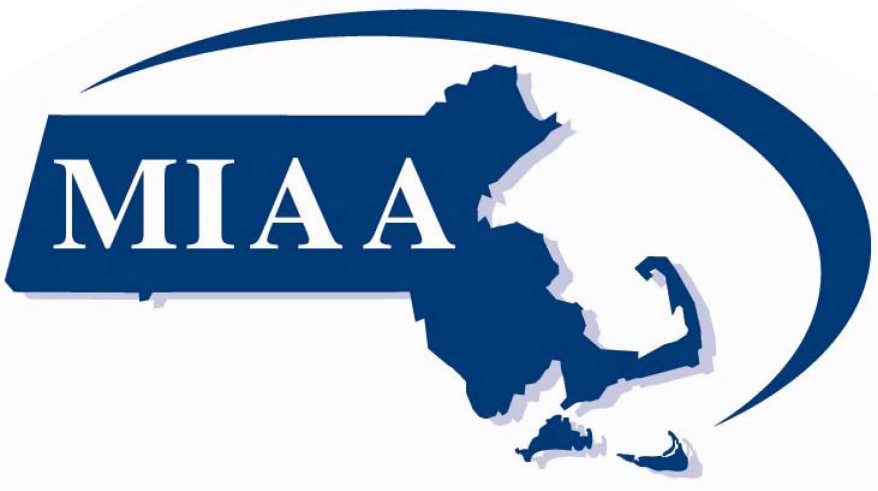MIAA Votes to Move to Statewide Tournament Format, End Sectional Play in Most Sports
 MARLBORO, Mass. -- The membership of the Massachusetts Interscholastic Athletic Association Friday voted to scrap the sectional tournament format and install a statewide tournament for most team sports starting in the 2021-22 academic year.
MARLBORO, Mass. -- The membership of the Massachusetts Interscholastic Athletic Association Friday voted to scrap the sectional tournament format and install a statewide tournament for most team sports starting in the 2021-22 academic year.
Fifty-eight percent of the school representatives at Friday morning's MIAA special assembly at Assabet Valley Regional Tech voted in favor of the statewide plan, a vote of 193-140.
The change means that events like the Western Mass basketball semi-finals and finals at Curry Hicks Cage and the softball semis and finals at Sortino Field will be a thing of the past after the spring of 2021.
Instead, teams will compete in statewide tournament brackets of about 32 teams with what proponents contend is a fairer path to state championships.
The MIAA's Tournament Management Committee, which developed the statewide plan previously endorsed by the MIAA's board of directors, was tasked with finding a way to elminate disparaties in the current playoff structure.
Among the advantages of the statewide format is that it allows the MIAA to create divisions that are truly based on size instead of shoe-horning schools into divisions where they don't belong in order to fill out brackets.
Disparaties like that faced by Pittsfield's softball team in 2018 would be a thing of the past.
That spring, Pittsfield won the Western Massachusetts Division 1 title. In the state semi-finals, the Generals lost to Wachusett, 10-2. Wachusett has a student enrollment of just more than 1,000; Pittsfield's is about 460.
In the sample alignment created by the TMC, Pittsfield would be in Division 3 for softball; Wachusett would be in Division 1.
Sports like softball, baseball, basketball and soccer likely would have five divisions and see Berkshire County teams in Divisions 3, 4 and 5. Some sports, like hockey and lacrosse, with fewer member schools participating, might have three or four divisions.
Critics of the statewide tournament format have made two main arguments: the new plan kills the tradition of well-loved events like Cage week in Western Mass and it creates the possibility that early round tournament games (which until now have involved teams in the same section) could pit teams from opposite sides of the commonwealth against one another.
The latter means more taxpayer money spent on bus contracts, more lost school time, later nights for the students involved and fewer family members and fans having the opportunity to see their teams play in tournament games.
One member of the TMC flatly dismissed the notion of "tradition" in high school sports at an MIAA press event in January.
"The kids rotate every four years, they're not going to know anything's changed in five or six years," said Johanna DiCarlo, the athletic director at Central Mass' Westborough High School.
As for the travel implications of a statewide tournament, TMC members have argued that opponents are "cherry picking" the most extreme potential tournament matchups to make the impact appear more severe than it is.
And, Wahconah Athletic Director Jared Shannon, a member of TMC, has pointed out that his teams already travel "well over an hour" for tournament games.
Ironically, on the day that the vote for a statewide tournament was taken, two "Western Mass" boys basketball tournament games on the schedule demonstrate just how much travel is involved in the current setup.
Winchendon's Murdock High is sending its boys basketball team to Dalton to face Wahconah, Mount Greylock is sending its boys to face Naragansett. Both are nearly two-hour drives. And both are necessitated by the MIAA moving traditionally Central Mass schools into the Western Mass tournament in order to balance brackets.
On Thursday, Quabbin Regional in Barre sent its girls team to play Taconic, another two-hour drive. That game was moved from 7 p.m. to 6 p.m. in order to get the Quabbin student-athletes home at a more reasonable hour.
Of course, there would be even more extreme examples under a statewide tournament format. And the TMC has not publicly discussed the possibility of creating a process to assess seeds and move teams one or two lines on a bracket (flipping the No. 21 and 22 seeds, for example) in order to eliminate onerous travel times.
In January, the TMC members expressed confidence that the statewide proposal would pass, but in the weeks since that event, there has been vocal opposition from fans, coaches and even administrators throughout Western Mass.
The final vote, while not exactly a landslide, showed that at least a majority of schools in the commonwealth are willing to take the drastic step of eliminating the sectional tournaments.
The MIAA claims a membership of 373 schools, meaning that 89 percent (333) cast ballots on the question. Had the remaining 40 schools all voted against the proposal, it still would have passed with 52 percent of the vote.
Teams in sports like soccer and basketball will continue to qualify for post-season play by winning 50 percent of their regular season games, as they do now. But two paths to the postseason will be eliminated: finishing first or second in a team's league or using the "Sullivan" rule to qualify with a sub-.500 record because a high percentage of your schedule is against teams from larger divisions.
As for sports like golf, cross country and track and field that currently have sectional championships, they are not covered under the statewide format passed on Friday. The TMC has said those sports will be addressed at a later date.
